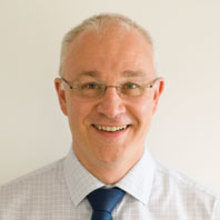From the Chief Executive
Issue: Future Tech
09 August 2016 article

At this year’s Annual Conference in March, we kicked off a major project to find out directly from you, the microbiology community, what more the Microbiology Society can do to support your careers, to connect and empower communities, so that the science of microbiology can make the greatest possible contribution to society. A rewarding scientific career always faces big challenges, and our job is to help you to tackle them. The more you tell Council, me and the rest of the staff about those challenges, the more we can do together to advance microbiology.
We know that many of the activities the Society carries out on your behalf have important impacts because you tell us so. After the Annual Conference this year, you let us know about new collaborations and grants that you will undertake with colleagues you met, about new sponsorship for your research that came directly from contacts you made, and about technical problems you fixed by drawing on the expertise of other delegates you encountered.
We know that some of the Society’s other activities are important because of the demand for them. The Scientific Conferences Committee, for example, has to make hard choices about which Focused Meetings we are able to run, because you are submitting so many excellent proposals. Our journals only publish a proportion of the articles that are submitted to them because the Editors and referees work hard to identify the most interesting and scientifically challenging work. And grant schemes like the Harry Smith Vacation Studentships reluctantly have to disappoint some deserving candidates because the demand outstrips our capacity to fund them.
Other activities are judged by the extent to which external audiences rate them. In policy, for example, we can see the impact we have on your behalf every time a politician quotes our briefings, or incorporates one of our recommendations into an official document. The ways of assessing some of what we do use quantitative benchmarks, such as the number of times the papers in our scientific journals are cited by others or the number of hits on the website – Microbiology Online received very nearly a million visitors last year.
All of these are valuable indicators that Council, the Committees and Divisions, supported by the staff, are investing in programmes that help you to advance both knowledge about microbiology and also its application into useful processes relevant to the environment, the economy, policymaking or our culture.
But the Society’s resources are finite, and we need to be constantly vigilant to the possibility that we could use them even more effectively. So we are using a range of different techniques to consult you about the greatest needs of the microbiology community. At the Annual Conference, we asked you to jot down on Post-it notes what you thought we should be doing. Every time Council or staff members come into contact with any of you, we are listening to what you tell us, and we also use more formal methods like surveys and focus groups.
These methods will all give us extremely valuable information that allows us to build a picture of how we can be most helpful. In the end, there is no substitute for face-to-face conversations. So if you think there are ways in which the Society could do even more for your career, please take the time to tell us. There are many ways you can help to shape the future of your Society. You could think about standing for election to serve on Council or a Committee or Division. You could come to an occasion like one of our conferences or the series of events on the day of the Annual General Meeting, which will be on 8 September. You could invite me to come and visit your laboratory. Or you could just email me and tell me what you think the Microbiology Society does well, what it could do more of, and how we can work together to advance the science of microbiology.
PETER COTGREAVE
Chief Executive
[email protected]
